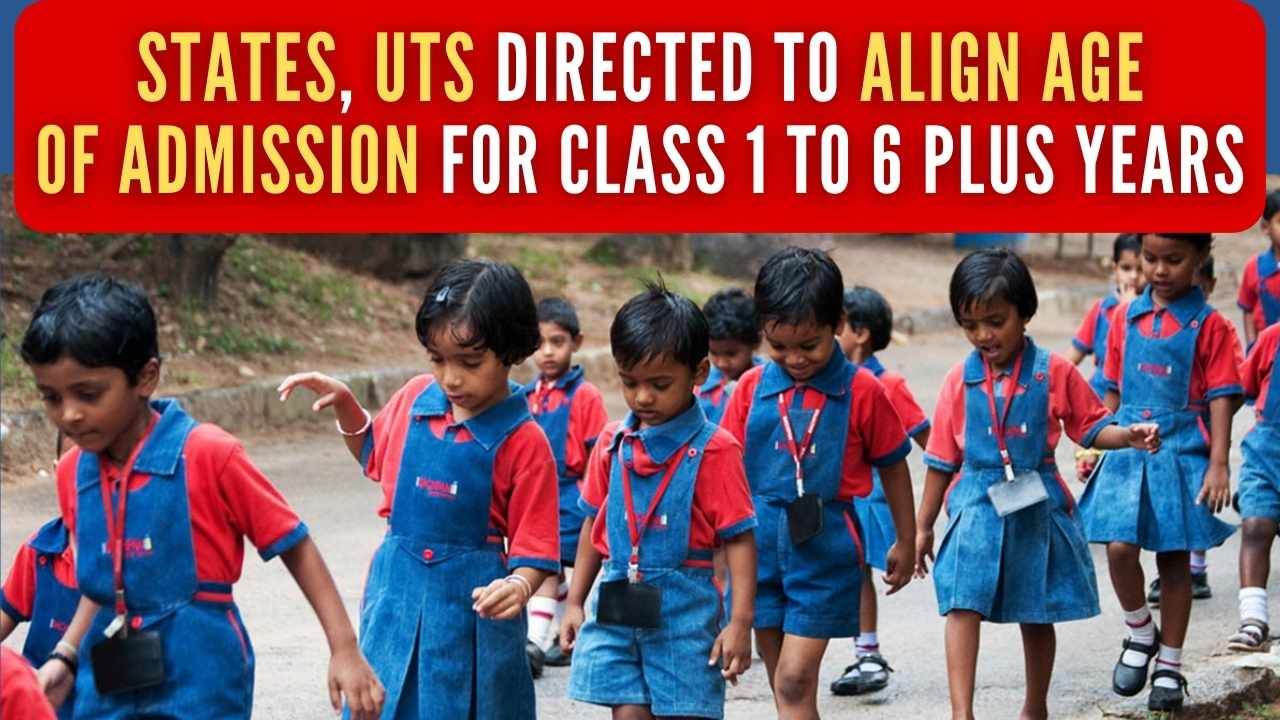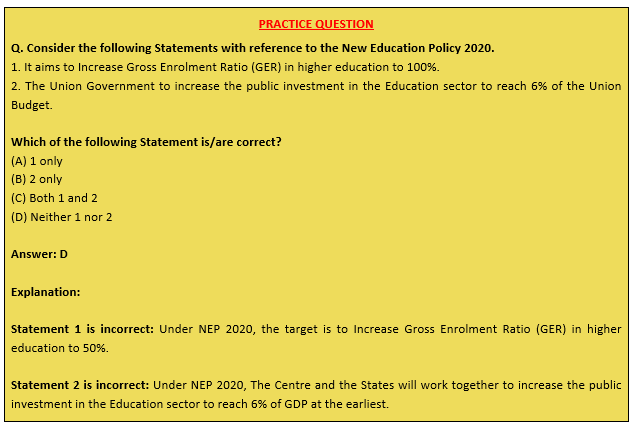Free Courses Sale ends Soon, Get It Now


Free Courses Sale ends Soon, Get It Now



Copyright infringement not intended
Context: The Union Education Ministry repeated its direction that children must be admitted to Class 1 at the age of “six-plus” instead of the earlier “five-plus”.
Details
Highlights of New Education Policy 2020

https://epaper.thehindu.com/ccidist-ws/th/th_delhi/issues/26165/OPS/GKLATLH0R.1+GFHATM6FS.1.html
© 2024 iasgyan. All right reserved